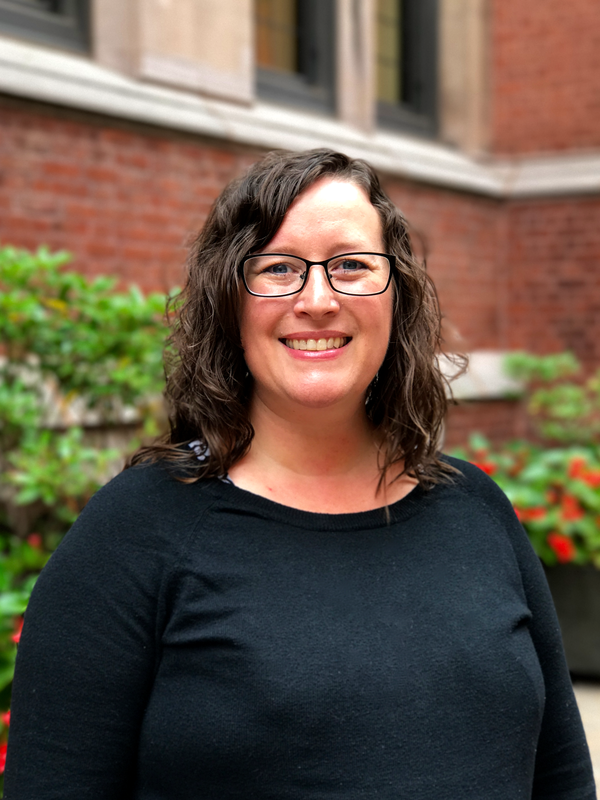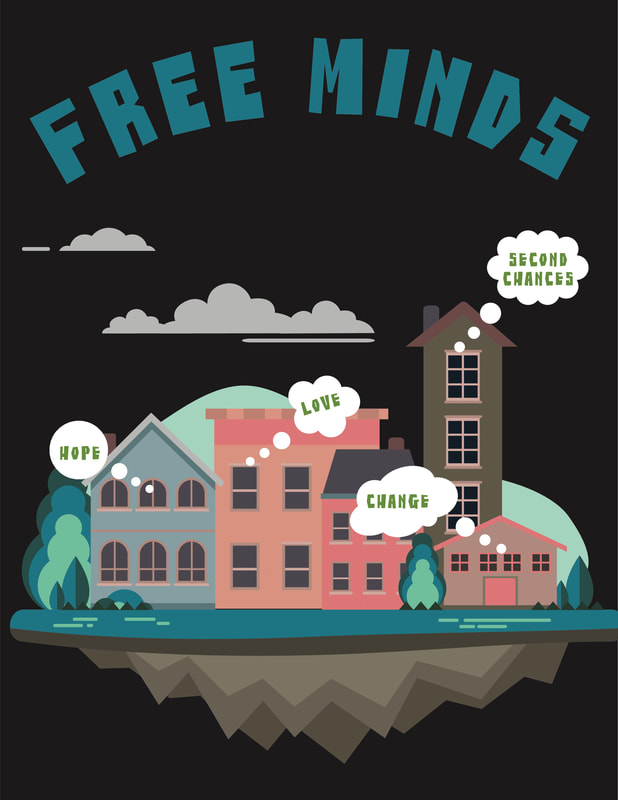I am from a caring mom
That cooks with pride
Baked ziti with chicken
And from T.V.,
Chicago PD.
I am from the hood
With gunshots that ring
More than doorbells,
From flowers
my mother grew,
Roses
As red as blood.
That untitled work, by a student at East River Academy, a New York City public school that serves young people at the city’s Rikers Island detention facility, is among the 69 poems, narratives and essays found on the pages of “Free Minds,” a booklet published by Teachers College’s Student Press Initiative (SPI). Launched 16 years ago by Ruth Vinz, Enid & Lester Morse Professor in Teacher Education, SPI is just one facet of TC’s Center for the Professional Education of Teachers (CPET), which was created by Vinz as an outlet for students at the Academy and other schools to express their thoughts, their hopes and their dreams.

REAL WORLD EDUCATOR Lenger Kang hopes the opportunity to write will prompt students at Rikers to “reflect on what got them there and what they need to do so they won’t come back.”
In May, District 79 – an alternative city school district that helps students under the age of 21 who have experienced an interruption to their studies – recognized CPET as an “Exemplary Partner” for its work with East River Academy, which includes professional and curriculum development. The honors were directed at the entire CPET team, which consists of the center’s director, Roberta Lenger Kang; SPI director Cristina Romeo Compton; Senior Professional Development Coach Courtney Brown; and a team focused on East River Academy Team whose members are TC students Shannon Alison and Andrew Ravin (both of whom are Zankel Fellows); TC Social Studies Education faculty member Erika Kitzmiller; and Senior Professional Development Coaches Greg Benoit (math) and Kristina Hopkins (science).
We are bringing together theory and practice by applying the knowledge base of Teachers College to how education works in the real world.”
Roberta Lenger Kang
“We are bringing together theory and practice by applying the knowledge base of Teachers College to how education works in the real world,” says Lenger Kang.
It doesn’t get more authentic than on Rikers Island, where the restrictions imposed on East River faculty and students “make for a very unique educational space,” says CPET Senior Professional Development Coach Courtney Brown.

YOUTH ANTHOLOGY The newest publication of TC's Student Press Initiative contains 69 poems, narratives and essays written by youth at Rikers Island's East River Academy.
For starters, East River Academy teachers are constantly challenged to jumpstart educations that have been disrupted by legal issues – and that will be disrupted again when students are released from custody.
Despite those challenges, or perhaps because of them, there is a powerful bond between the Rikers teachers and CPET, sustained by events such as the CPET “In Practice” workshop on teaching and learning held this past June’s at TC, where an East River Academy contingent joined other educators from across the region.
The day-long TC gathering featured case studies on topics such as student engagement, elementary school math and reading models, guidance on the implementation of educational research in the classroom and critical reflection exercises.
East River Academy teachers are constantly challenged to jumpstart educations that have been disrupted by legal issues – and that will be disrupted again when students are released from custody.
In the latter, participants were asked to word classroom experiences as cooking and baking recipes.
On educator, looking ahead to her second year of teaching, proposed baking an offering she called “forever, it is never done,” consisting of the ingredients “boisterous students,” “hours of lesson planning” and “unrealistic expectations.”

UNIQUE EDUCATIONAL SPACE Rikers Island, where teachers are constantly challenged to jumpstart educations that have been disrupted by legal issues. (By U.S. Geological Survey, conversion to PNG by uploader (Herr Satz). [Public domain], via Wikimedia Commons)
Another teacher said her creation would require a “variety of spices that can give you severe heartburn,” and included a warning label: “Be sure to buy Tums to keep in the cabinet before preparing.”
As in all their work with East River teachers, the CPET professional development team encouraged the workshop attendees to establish structural classroom benchmarks. Having yardsticks for achieving goals is especially important for Rikers students, said Brown, because it offers them a way to “take advantage of the time they are spending in limbo.”
And ideally, says Kang, the lessons will transcend math, science and reading. “Being in school, and writing in particular, offers an opportunity for the students to reflect on what got them there and what they need to do so they won’t come back.”
